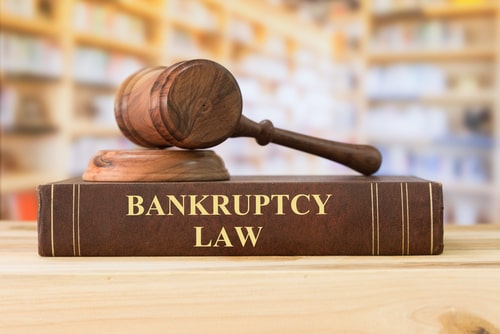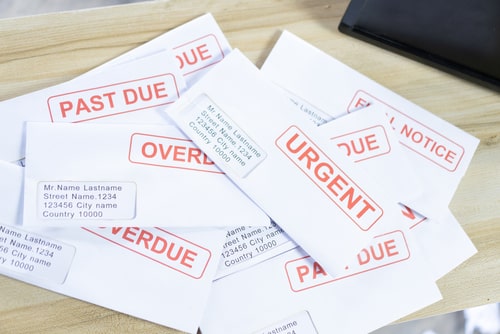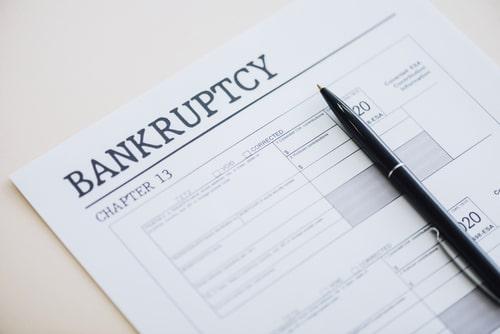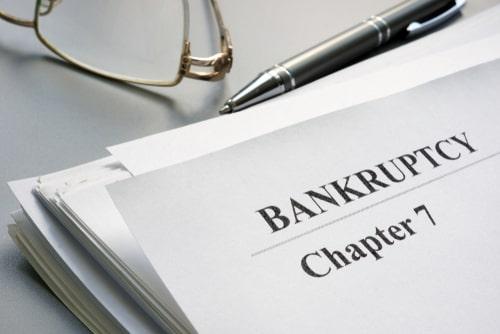Recent Blog Posts
Reaffirming Your Car Loan in Chapter 7 Bankruptcy in Texas
 When filing for Chapter 7 bankruptcy in Texas, consider reaffirming your auto loan to keep the vehicle. Reaffirmation can allow you to retain an asset while upholding payment obligations. A Texas lawyer can help you with the proper steps to ensure you are going through the process correctly.
When filing for Chapter 7 bankruptcy in Texas, consider reaffirming your auto loan to keep the vehicle. Reaffirmation can allow you to retain an asset while upholding payment obligations. A Texas lawyer can help you with the proper steps to ensure you are going through the process correctly.
What Happens to Debts in a Chapter 7 Bankruptcy
Chapter 7 bankruptcy provides the filer relief by liquidating most unsecured debts like credit cards and personal loans. This gives the filer a fresh start financially. However, filing Chapter 7 means you have a choice regarding secured debts, like car loans or mortgages tied to a vehicle or home as collateral.
You can either reaffirm the loan agreement and continue making payments or surrender the collateral to the lender. If the car loan is not reaffirmed, the lender can repossess the vehicle even if all payments are current.
How Long Does a Bankruptcy Case Last?
 Facing financial hardship is undoubtedly a stressful situation. For people and businesses considering bankruptcy as a solution, it is essential to understand the duration of the bankruptcy process. Knowing that the process is unpleasant but that it does come to an end can help you maintain perspective and optimism. If you are interested in pursuing bankruptcy as a way to get the financial help you need, contact a skilled lawyer to get the process started today.
Facing financial hardship is undoubtedly a stressful situation. For people and businesses considering bankruptcy as a solution, it is essential to understand the duration of the bankruptcy process. Knowing that the process is unpleasant but that it does come to an end can help you maintain perspective and optimism. If you are interested in pursuing bankruptcy as a way to get the financial help you need, contact a skilled lawyer to get the process started today.
Factors Affecting the Duration of a Bankruptcy Case
In Texas, several factors contribute to the length of a bankruptcy case. The complexity of the financial situation, the type of bankruptcy filed, creditors' cooperation, and the court's caseload are significant variables that must be considered. Chapter 7, Chapter 13, and Chapter 11 bankruptcies each have their unique features and timelines.
Should I File for Bankruptcy?
 When facing grim financial challenges, individuals often wonder whether bankruptcy is right for them. Bankruptcy is a legal process that provides individuals with a new start by eliminating or restructuring their debt. However, pursuing bankruptcy as an option is not a decision to be taken lightly. If you are considering bankruptcy, contact an experienced lawyer to ensure you know what the process entails and can also be sure to understand the pros and cons of pursuing bankruptcy so you can make as informed a decision as possible.
When facing grim financial challenges, individuals often wonder whether bankruptcy is right for them. Bankruptcy is a legal process that provides individuals with a new start by eliminating or restructuring their debt. However, pursuing bankruptcy as an option is not a decision to be taken lightly. If you are considering bankruptcy, contact an experienced lawyer to ensure you know what the process entails and can also be sure to understand the pros and cons of pursuing bankruptcy so you can make as informed a decision as possible.
You Must First Assess Your Financial Situation
Before you decide to file for bankruptcy, you must thoroughly assess your financial situation. Evaluate your income, expenses, and debt obligations. If you find that your debt is unmanageable, bankruptcy may be a viable option.
Will I Lose My House During Chapter 13 Bankruptcy?
 Filing for Chapter 13 bankruptcy allows people to restructure their debt and regain control of their financial situation. One of the most common concerns people have when considering this type of bankruptcy is whether they will lose their home. When it comes to Chapter 13 bankruptcy, as long as you comply with the terms of your Chapter 13 repayment plan, your home will be protected from foreclosure. If you are interested in pursuing Chapter 13 bankruptcy in Texas, contact an experienced lawyer to ensure you have the legal guidance to make informed decisions regarding your financial future.
Filing for Chapter 13 bankruptcy allows people to restructure their debt and regain control of their financial situation. One of the most common concerns people have when considering this type of bankruptcy is whether they will lose their home. When it comes to Chapter 13 bankruptcy, as long as you comply with the terms of your Chapter 13 repayment plan, your home will be protected from foreclosure. If you are interested in pursuing Chapter 13 bankruptcy in Texas, contact an experienced lawyer to ensure you have the legal guidance to make informed decisions regarding your financial future.
What You Need to Know About Chapter 13 Bankruptcy
 Chapter 13 bankruptcy is a legal process that allows individuals to restructure their debts and build a repayment plan. Understanding the key aspects of Chapter 13 bankruptcy can help people assess whether it is the right option for their financial situation and navigate the process effectively. If you are interested in pursuing Chapter 13 bankruptcy, contact a lawyer to ensure you have the legal guidance and protection necessary to make well-informed decisions during this critical time.
Chapter 13 bankruptcy is a legal process that allows individuals to restructure their debts and build a repayment plan. Understanding the key aspects of Chapter 13 bankruptcy can help people assess whether it is the right option for their financial situation and navigate the process effectively. If you are interested in pursuing Chapter 13 bankruptcy, contact a lawyer to ensure you have the legal guidance and protection necessary to make well-informed decisions during this critical time.
Repayment Plan
One of the main features of Chapter 13 bankruptcy is the creation of a repayment plan. This plan outlines how the debtor will repay their debts in a timeframe of about three to five years. The repayment plan is based on the debtor’s income and expenses. It allows individuals to catch up on missed mortgage or car payments, pay off priority debts, and reduce or eliminate certain unsecured debts.
Why You Should Hire an Attorney to Handle Your Bankruptcy
 Bankruptcy can be a complex and overwhelming process for any individual to have to go through. While it may be tempting to navigate the process alone, hiring an attorney is almost always a wise decision. Therefore, it is essential to understand why hiring an attorney is essential when going through bankruptcy proceedings. With proper legal guidance, you can confidently get through this challenging process.
Bankruptcy can be a complex and overwhelming process for any individual to have to go through. While it may be tempting to navigate the process alone, hiring an attorney is almost always a wise decision. Therefore, it is essential to understand why hiring an attorney is essential when going through bankruptcy proceedings. With proper legal guidance, you can confidently get through this challenging process.
Experience Matters
In so many areas of law, experience is an important trait for an attorney to possess, especially when it comes to bankruptcy. Bankruptcy law is intricate and constantly evolving. Hiring an attorney with ample experience ensures that you will have access to their years of experience in handling similar cases. They understand the nuances of the law's potential pitfalls and can guide you through the entire process, making it less stressful and more efficient.
The Impact of Bankruptcy on Your Credit Score in Texas
 Filing for bankruptcy in Texas can provide critical financial relief when you are buried in unsustainable debt. However, it also inevitably affects your credit score and report. Here is a look at how different types of bankruptcy filings can impact your credit in Texas, both short and long term and how an attorney can help.
Filing for bankruptcy in Texas can provide critical financial relief when you are buried in unsustainable debt. However, it also inevitably affects your credit score and report. Here is a look at how different types of bankruptcy filings can impact your credit in Texas, both short and long term and how an attorney can help.
The Immediate Credit Score Drop from Bankruptcy
Your credit score will decrease significantly in the months immediately following either a Chapter 7 or Chapter 13 bankruptcy filing in Texas. This happens for several reasons. First, all accounts included in the bankruptcy will be closed or marked with a negative status, subtracting from your credit mix. Your credit utilization ratio will suddenly jump since your total limits decrease while balances owed may remain similar pre-filing.
Can Filing Bankruptcy Stop Wage Garnishment in Texas?
 Few financial situations feel more stressful or overwhelming than having your hard-earned wages garnished by creditors. However, filing for bankruptcy in Texas may stop ongoing wage garnishments in their tracks while also permanently eliminating the underlying debt through discharge so you can recover and regain financial stability. Here is an extensive look at how declaring bankruptcy with a lawyer can halt creditor wage garnishment.
Few financial situations feel more stressful or overwhelming than having your hard-earned wages garnished by creditors. However, filing for bankruptcy in Texas may stop ongoing wage garnishments in their tracks while also permanently eliminating the underlying debt through discharge so you can recover and regain financial stability. Here is an extensive look at how declaring bankruptcy with a lawyer can halt creditor wage garnishment.
How Bankruptcy’s Automatic Stay Stops Collections
When you file a Chapter 7 or Chapter 13 bankruptcy petition in Texas, an "automatic stay" will go into effect immediately under federal law. This triggers a broad legal injunction that prohibits any continued garnishment of your wages and halts all collection activity against you. The automatic stay specifically prevents creditors and collectors from pursuing repossession of property, foreclosure of homes, disconnection of utilities, civil litigation against you, or any other debt collection activities. They cannot legally garnish your wages or bank accounts after you file bankruptcy without getting the stay lifted.
How Bankruptcy Impacts Student Loans in Texas
 Student loans are notoriously difficult to discharge in bankruptcy. The specific impact bankruptcy can have on student loan debt often depends on the loan type and bankruptcy chapter. Here is a more in-depth look at how different student loans are treated in bankruptcy cases. For more detailed information, contact a Texas bankruptcy attorney.
Student loans are notoriously difficult to discharge in bankruptcy. The specific impact bankruptcy can have on student loan debt often depends on the loan type and bankruptcy chapter. Here is a more in-depth look at how different student loans are treated in bankruptcy cases. For more detailed information, contact a Texas bankruptcy attorney.
Federal Student Loan Dischargeability
Most federal student loans, including Stafford, PLUS, and Perkins loans, cannot be discharged through bankruptcy in Texas. These loans fall under the U.S. Bankruptcy Code's "undue hardship" provision. To prove undue hardship and attempt federal student loan discharge, you must file an adversarial proceeding in bankruptcy court against the lender and prove:
When Are Chapter 7 Cases Subject to a Presumption of Abuse?
 Not everyone qualifies for Chapter 7 bankruptcy. Only individuals and married couples who do not earn much income are eligible for this kind of debt relief. Meeting the income limits for Chapter 7 bankruptcy is also known as “passing the Chapter 7 means test.” If someone files for Chapter 7 bankruptcy but does not pass this means test, their case will likely be dismissed due to the court’s presumption of abuse. This is why it is important to have a Texas bankruptcy lawyer assist you with your case.
Not everyone qualifies for Chapter 7 bankruptcy. Only individuals and married couples who do not earn much income are eligible for this kind of debt relief. Meeting the income limits for Chapter 7 bankruptcy is also known as “passing the Chapter 7 means test.” If someone files for Chapter 7 bankruptcy but does not pass this means test, their case will likely be dismissed due to the court’s presumption of abuse. This is why it is important to have a Texas bankruptcy lawyer assist you with your case.
How Can a Filer Abuse the Chapter 7 Process?
Unlike Chapter 13 bankruptcy – which requires filers to stick to a repayment plan for three to five years – Chapter 7 bankruptcy filers do not have to repay their creditors before their qualifying unsecured debts can be discharged. Because creditors have rights too, the courts reserve the extreme benefits of Chapter 7 bankruptcy for low-wage earners who are unlikely to be able to repay their debts anytime soon.






